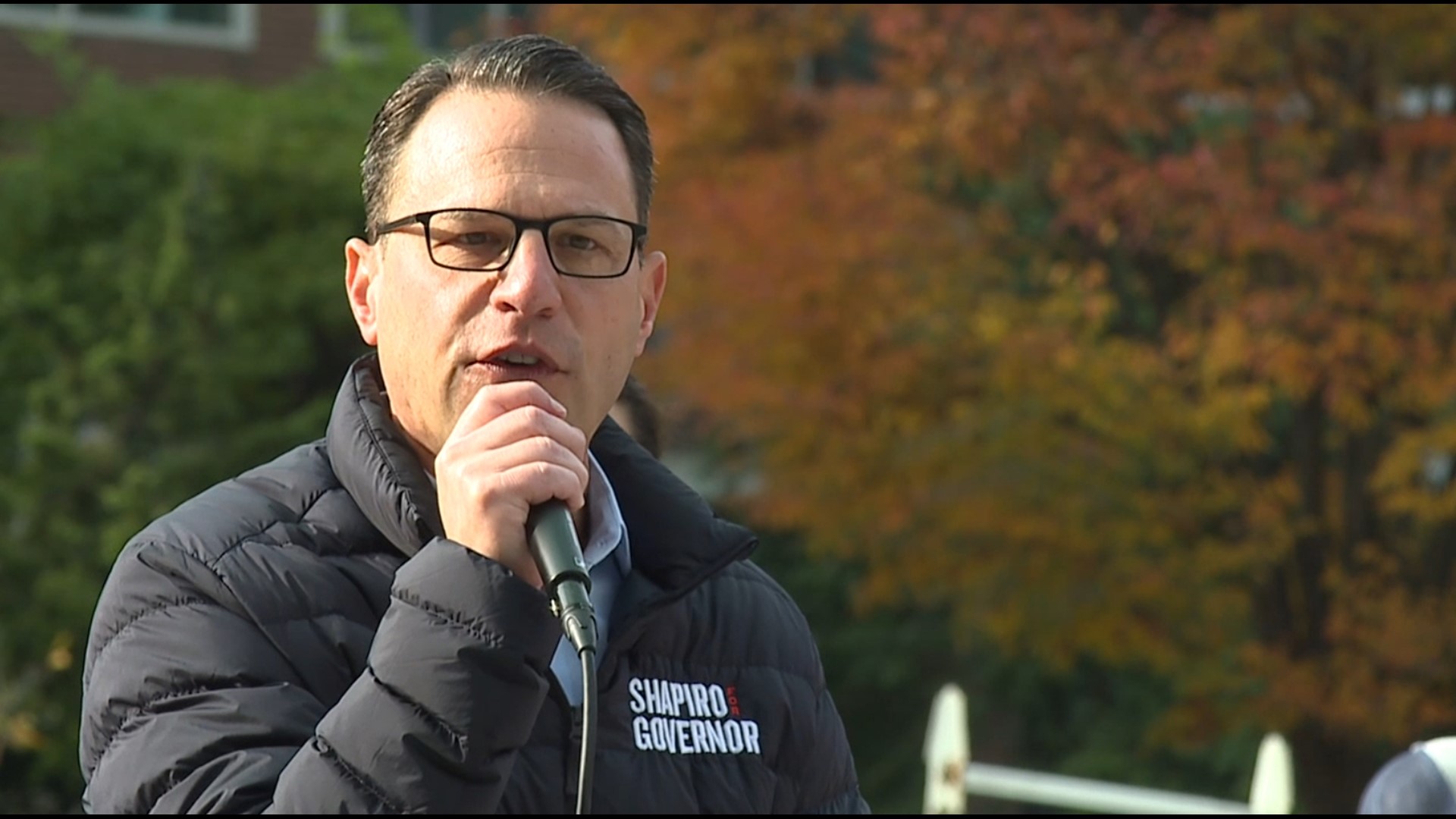HARRISBURG, Pa. — Governor-elect Josh Shapiro’s office has been busy assembling the team of people who will comprise his administration when he is sworn into office on Jan. 17.
Near-daily press releases announced the latest people named to cabinet and executive positions in the administration.
Political watchers are just as busy analyzing the choices of nominees to determine how Shapiro intends to govern.
The period between the election and inauguration is critical for a smooth transition, analysts said.
“In a period of a couple months, you have to shift from campaign to governing mode, you have the crush of appointments to make, you’ve got to translate your campaign promises into a policy agenda,” said David Thornburgh, senior advisor to the Committee of Seventy, an influential government reform group based in Philadelphia.
“And by the way, before you know it, you’re going to have to come up with a budget to present to the legislature in a couple of months," he added.
Governor-elects typically assemble a transition team of people who will help set policy agendas based on the administration’s goals. Shapiro appointed 300 people to his transition team.
After a governor takes office in Pennsylvania, there are an additional 40 cabinet and executive official positions to fill.
During Shapiro’s gubernatorial campaign, he emphasized consensus-building and pragmatism over party politics. Veteran political operatives in Pennsylvania said his transition team and cabinet picks show an unusual level of bipartisanship.
“Governing is different than being a senator or something like that because it’s about results. Sometimes things are not ideological. They’re not right and they’re not left. That’s where I think he’s going to have a lot of strength and be able to put things together,” said Larry Ceisler, a prominent Pennsylvania Democratic public affairs executive.
As expected for a Democratic governor, the majority of the transition team and cabinet posts went to Democrats.
“I’ve gotten a lot of phone calls from people who were very disappointed that they didn’t make the final cut,” Ceisler said. “These people who have called me are very impressive people in their own right. So if you’re looking at the people who finished second and third and you say, ‘Hey, this is a pretty good group of people,’ chances are the people who were selected are very impressive.”
Several major posts went to Republicans. Most notably, Shapiro’s team on Jan. 5 announced the next Secretary of State will be Al Schmidt, a former Philadelphia city commissioner.
Schmidt is well respected in political circles as someone who is battle-tested from defending the city’s election integrity against attacks by former President Donald Trump.
“It’s a good sign that a governor looks to the other party, that identifies people of competence and integrity, and I think Governor-elect Shapiro scores highly so far around those attributes,” said Thornburgh. “I would take as a breath of fresh air any sign that we’re moving past this entrenched, hyper-partisan bitter divisiveness. That to me, is not Pennsylvania.”
Consensus means competing interests must come together, so some friction is expected. Interests on both the left and right are already criticizing some of Shapiro’s picks.
“What you’ll see from more liberal parts of the Democratic Party is a frustration that more of ‘their people' are not being chosen for these top-level positions,” said Christopher Nicholas, a veteran Republican political consultant.
Republicans, Nicholas said, are waiting to see how everything plays out. Initial cautious optimism has faded somewhat as leaders in the state House struggle to establish which party will have majority control. The uncertainty there could hinder the governor’s ability to pass legislation.
Some criticism has been pointed at the number of transition team spots that went to top donors. At least 30 people on the transition team personally donated a total of at least $2.5 million to Shapiro’s campaign.
Top donors who received posts include Thomas Hagen, a former Pa. Secretary of Commerce who donated $750,000 and was appointed to the Transition Leadership Board; Leslie Anne Miller, former General Counsel under former Gov. Ed Rendell who donated $250,000 and was appointed to the Transition Personnel Committee; and Vince Tutino, the president of Lindy Paving who donated $200,000 and was appointed to the Transportation and Infrastructure Subcommittee.
“It’s very common for people who win executive offices—mayor, governor, president—to put a lot of their donors on the transition team,” Nicholas said. “It’s an easy payback. Titles are easy and plentiful in politics to give away.”
While trading donations for positions may be a form of political favors, donating to a political campaign doesn’t necessarily disqualify someone from being an effective member of the transition team.
In fact, analysts said, large donors are often the most motivated to make their candidates’ goals succeed.
“It means that they’re invested in the success of the Shapiro administration, which means that the people and the policies that they’re going to jumpstart to get this administration going, if they run into some bumps down the road in the legislature, I think that Gov. Shapiro will be able to call on these people to assist,” Ceisler said.

